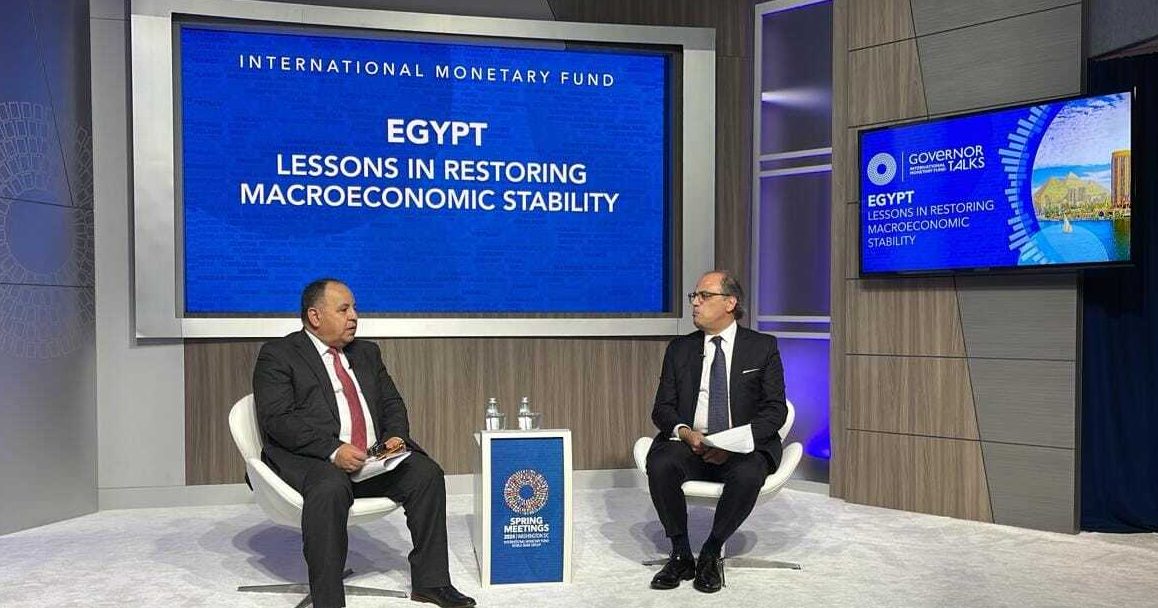The Egyptian Minister of Finance, Dr. Mohamed Maait, stated on 17 April that Egypt aims to empower the private sector to constitute 70 percent of Egypt’s gross domestic product (GDP), with a focus on increasing domestic production and exports.
During a panel discussion in the event, “Governor Talks – Egypt: Lessons in Restoring Macroeconomic Stability” of the International Monetary Fund (IMF) and World Bank spring meetings held at Washington, DC, Maait announced, “We are implementing a comprehensive and integrated economic reform agenda that puts us on the right track.”
Egypt plans to empower the private sector to become a prominent part of Egypt’s economy and hold a share ranging between 65 to 70 percent of the market. By prioritizing local production, promoting exporting, and offering opportunities for private businesses, the government will help the private sector flourish.
Maait explained that through a new wave of integrated structural reforms, Egypt’s ability to achieve stability and economic progress will be enhanced, highlighting the importance of Ras Al-Hekma deal, which reflects the capability of the Egyptian economy to attract more investment inflows.
He emphasized the government’s aim to sell additional state-owned assets, which would decrease the state’s role in the economy, allowing the private sector to own more assets, increase productivity, and generate revenues that could reduce Egypt’s debt.
“Giving the main role to the private sector to lead the country is for the benefit of the state. Why? Because we have close to one million young people coming to the labor market looking for jobs every year,” Maait said. He continued, stating that the government cannot create more than 100,000 new jobs, and an economy led by the private sector can create 900,000 jobs or even more when given the opportunity.







Comments (0)